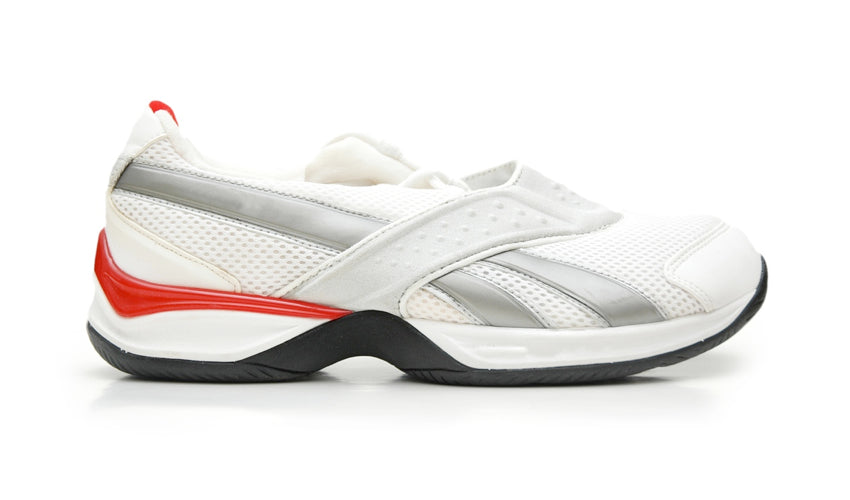
Heel elevation is a design element present in almost every shoe, from dress shoes to work boots to running shoes, though there is little (if any) compelling evidence to account for its inclusion in shoes or other footwear. Most people in the United States and other parts of the world begin wearing shoes when they learn to walk, some even before. Almost all shoes, including children’s shoes, possess heel elevation, or a layer of material (ranging from stiff to spongy) that elevates the heel above the forefoot.
General Health Effects

Heel elevation (especially in combination with toe spring) causes an unnecessary stretching of foot structures, forces the wearer to walk on a downhill ramp, puts extraordinary pressure on sensitive ball of foot tissues, and essentially inverts the main foot arch (i.e., the medial longitudinal arch). Prolonged positioning of the foot in this configuration causes a contraction, or shortening, of the posterior lower leg muscles, or the muscles at the back of the lower leg.
Calf muscles—the gastrocnemius and soleus muscles—are commonly affected by heel elevation, though three other muscles located at the back of the lower leg may also be affected: Tibialis posterior, flexor hallucis longus, and flexor digitorum longus. These muscles are particularly important in helping the main foot arch function properly, and they help the toes perform several important actions, including grasping, balancing, and guiding the body forward during the propulsive, or push-off, phase of gait.
Effect on Arch Flattening & Pronation

Shortened lower leg muscles contribute to faulty foot function in several key ways, one of the most significant of which is improper pulling on the back of the heel, which increases the degree of arch flattening the foot experiences. Long-term lower leg muscle shortening contributes to excessive foot and ankle pronation, which is a contributing factor in numerous foot and ankle problems. Because overpronation is a significant factor in foot and ankle problems, it makes perfect sense, then, to decrease or remove the heel elevation in shoes to curtail further shortening of the lower leg muscles and the corresponding arch flattening.
Effect on the Involuntary Stretch Reflex
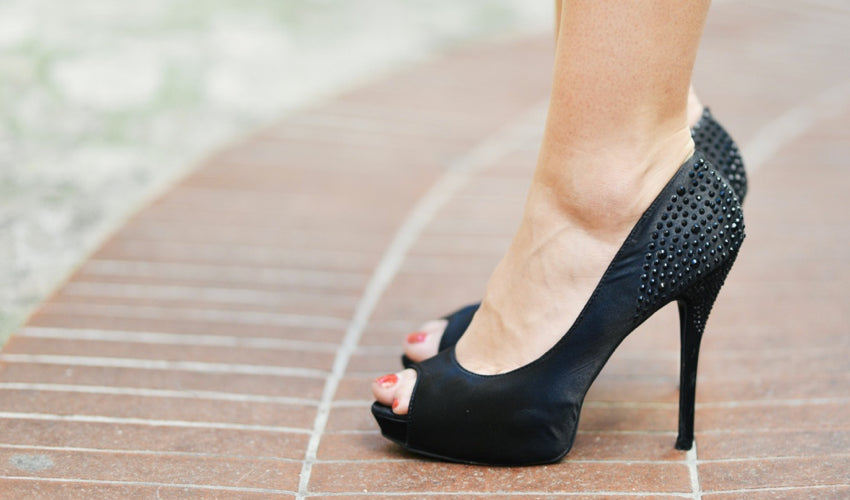
Another important and potentially debilitating effect of heel elevation is the way in which it disables the involuntary stretch reflex built into the posterior lower leg. This reflex, which functions to maintain a muscle at a constant length, can only be activated if the heel is allowed to contact (or come close to) the ground—a biomechanical circumstance that is impossible in most shoes available to consumers today. Activation of this lower leg stretch reflex should happen with every step to help the forefoot (especially the big toe) with propulsion; without it, normal (healthy) gait and propulsion is not possible.
Effect on Natural Gait & Locomotion

Inactivation of the lower leg stretch reflex may seem unimportant because it's still possible to walk and participate in athletic activities in footwear that includes heel elevation. But it is important when you consider that gait will never be natural when walking or running in conventional footwear, and that gait is, in fact, significantly hampered by a design element (heel elevation) that's often touted as helpful or advantageous. Heel elevation (or lack thereof) is one of the key factors we at Natural Footgear consider when selecting shoes to feature on our site (more on this below).
Effect on Ball of Foot Structures
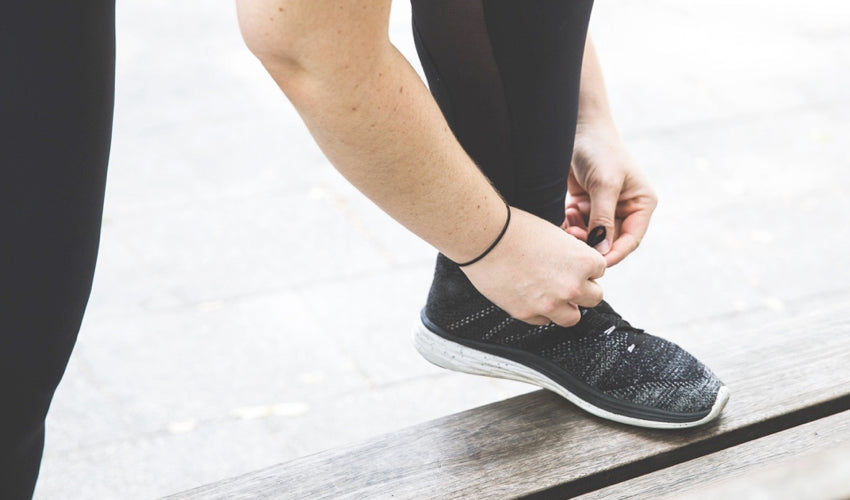
As mentioned earlier, heel elevation puts most of the burden of weight-bearing on ball of foot structures, including the many nerves, blood vessels, muscles, tendons, and ligaments (as well as the metatarsal heads) that exist in this part of the foot. Because most conventional footwear also includes toe spring, the protective forefoot fat pad that would normally safeguard these tissues and structures is displaced, dragged forward by toes that are in a chronically extended position. This makes ball of foot structures even more vulnerable to the forces associated with standing, walking, running, jumping, etc. Common ball of foot problems that are caused, at least in part, by heel elevation include neuromas, capsulitis, sesamoiditis, and metatarsal stress fractures.
Note: Heel elevation has an outsized effect on tinier feet, as shorter shoes tend to have the same elevation as longer shoes but a steeper ramp from heel to forefoot. So, unfortunately, children and smaller-footed individuals tend to experience the most problems with this deleterious footwear design inclusion.
Zero Drop: A Foot-Healthy Choice

The type of footwear we promote at Natural Footgear incorporates a zero drop sole, meaning that the sole is completely flat from heel to toe (no heel elevation, no toe spring—or if it does have some toe spring, it's of the flexible variety and can easily be flattened out when weight-bearing). The footwear we promote also does not include any unnatural arch bumps or props or “motion control technology.”
Zero drop footwear puts the heel and forefoot (including the toes) on a level plane, which helps stabilize the foot and ankle, spreads the force of body weight across the entire foot, and enables natural arch support. Shoes that possess a zero drop platform in combination with a sole that's easily bent or twisted, as well as a toe box that's widest at the ends of the toes, help strengthen feet and make them happy and well.
SHOP MEN'S ZERO DROP FOOTWEAR SHOP WOMEN'S ZERO DROP FOOTWEAR

WANT TO IMPROVE YOUR FOOT HEALTH?
Let the team at Natural Footgear help you! Subscribe to our newsletter for the latest offers and helpful info, and sign up for our FREE email courses on various topics and foot health conditions.
Sign Up →
Want to Improve Your Foot Health?
We are here to help you every step of the way. Get our newsletter for the latest offers and helpful info, and sign up for our FREE email courses on various topics and conditions, including bunions, hammertoes, neuromas, plantar fasciosis, shin splints, ingrown toenails, and more.
Sign Up →
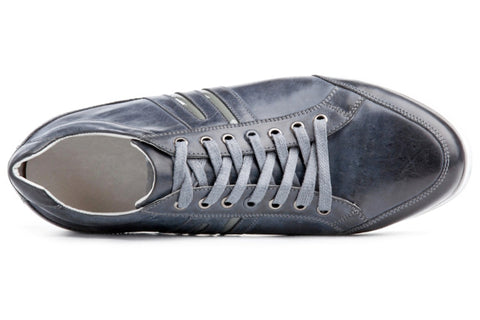 Toe box taper—the narrowing of a shoe from the ball of your foot to the ends of your toes—is one of the most harmful features of conventional footwear. It's difficult to find a pair of shoes or boots (or even sandals) that are wider at the ends of your toes than the ball of your foot. Most shoes and boots, including athletic models, force your toes into a wedge position...
Read more
Toe box taper—the narrowing of a shoe from the ball of your foot to the ends of your toes—is one of the most harmful features of conventional footwear. It's difficult to find a pair of shoes or boots (or even sandals) that are wider at the ends of your toes than the ball of your foot. Most shoes and boots, including athletic models, force your toes into a wedge position...
Read more









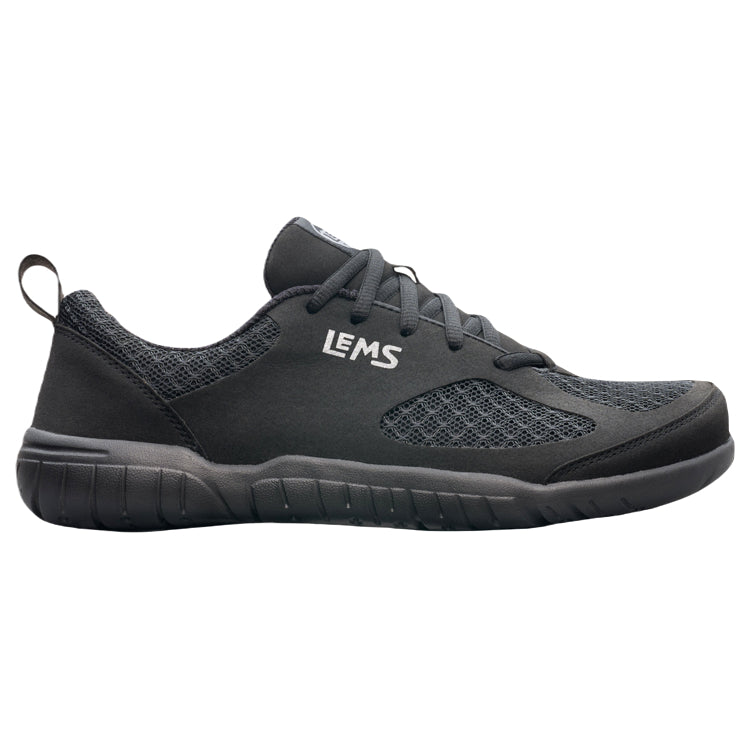
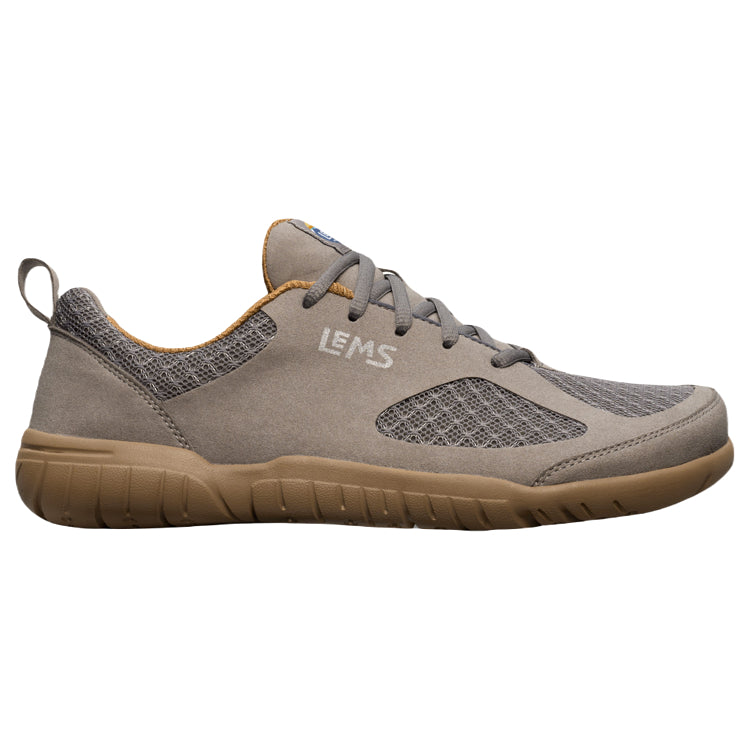
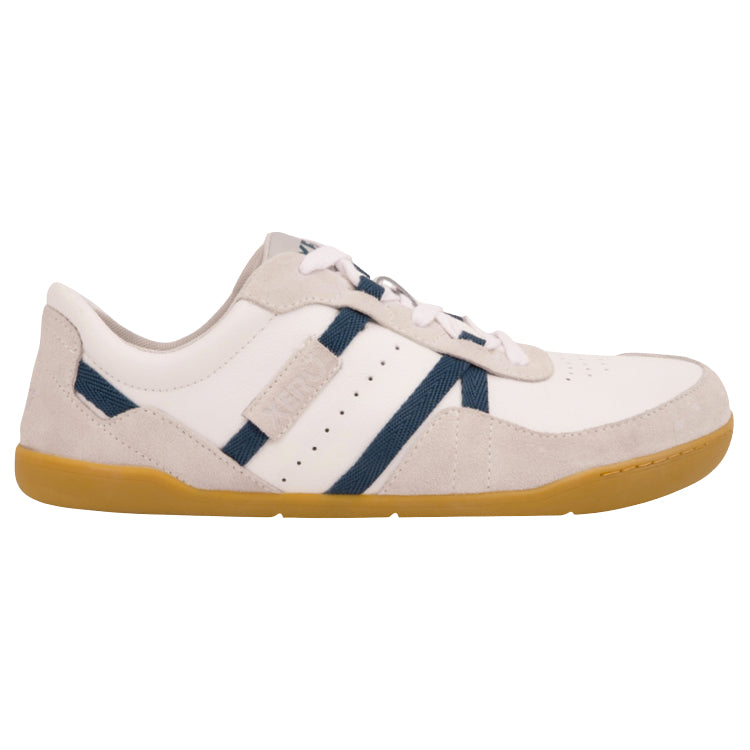
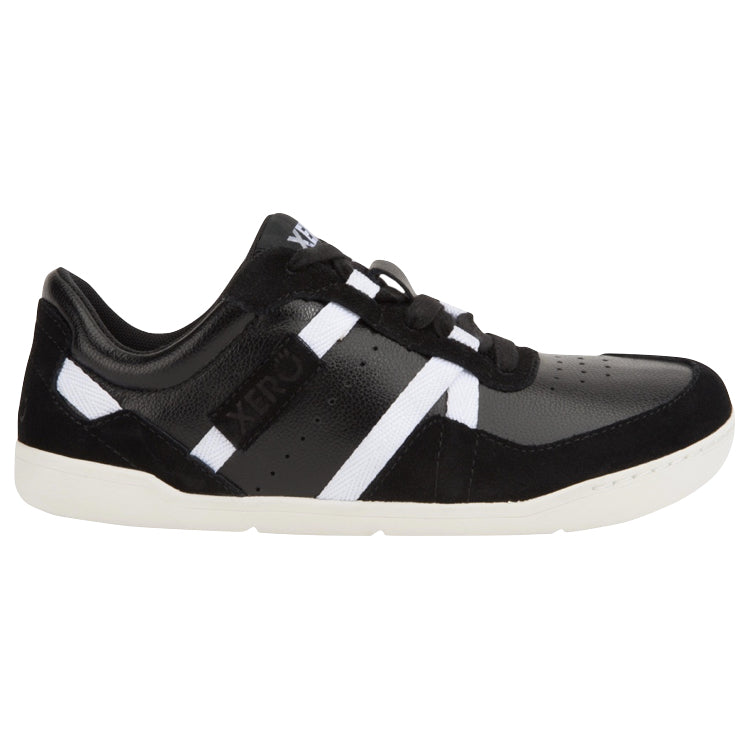
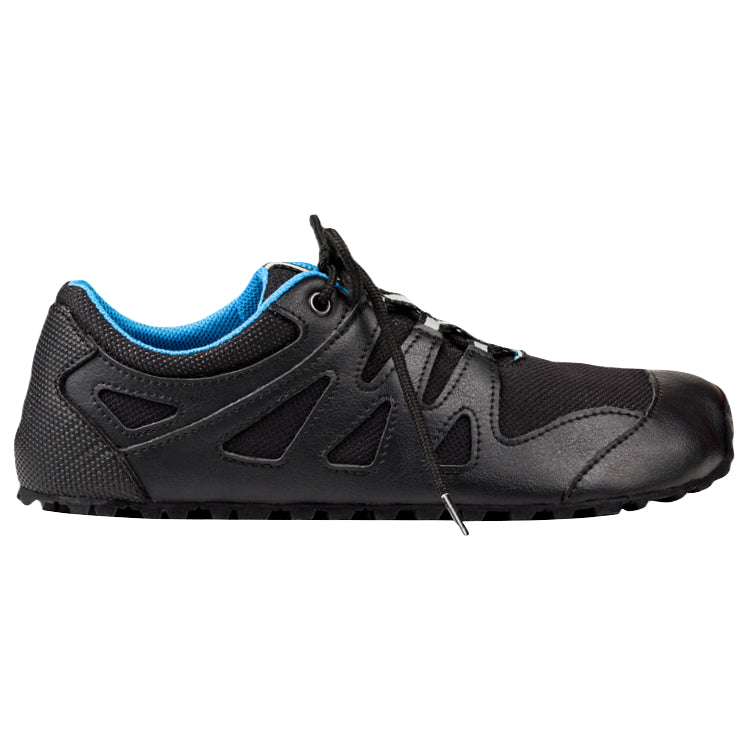
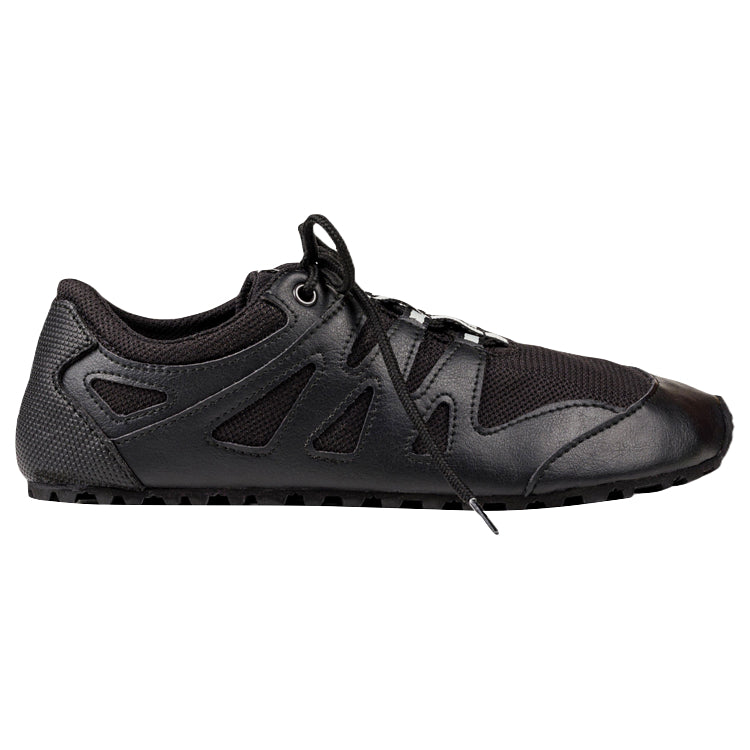

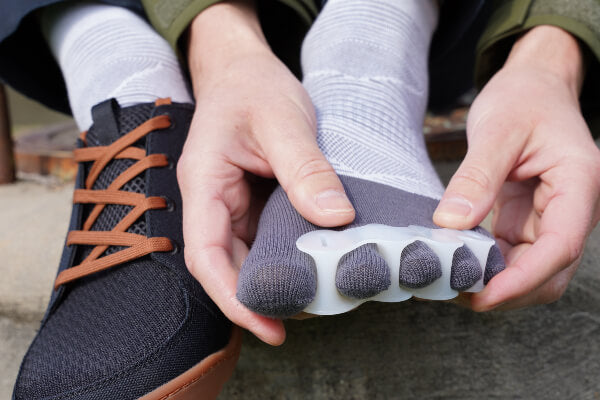
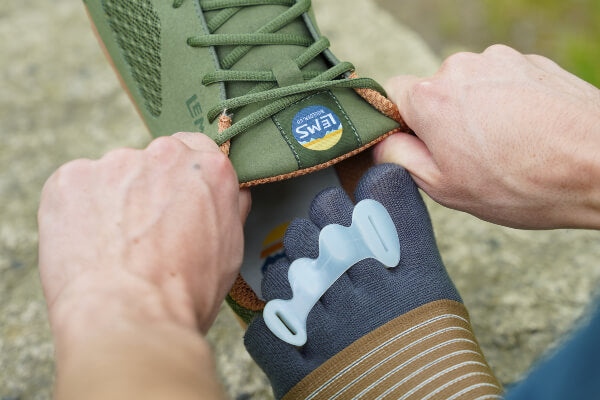
So what do you think of the negative heel Earth Shoes?
Hi, Karen,
Thank you for your message. And thank you for your question.
Our general approach to footwear involves assessing each model for the various design elements that, in our experience, we’ve found to be optimal for the foot. One such design element is a completely flat sole from heel to toe. The foot functions best when it’s allowed to operate on a level plane, and so anything that deviates from that (whether it be an elevated heel or a heel drop, in the case of Earth Shoes) destabilizes the main foot arch and promotes imbalances in the feet and toes.
The negative heel of the Earth Shoe may provide a stretch to the Achilles tendon—and most people who have worn conventional shoes for many years might benefit from lengthening out their Achilles tendon—but to put the foot in this configuration for long periods of time is unnatural and does not allow the main foot arch to function as nature intended.
Also, Earth Shoes tend to have a fairly substantial amount of cushioning and material between the foot and the ground, which is something that we believe encourages increased joint impact and a less than optimal gait.
I have included some resources below that I think you may find helpful. Please let us know if you have any further questions. We are here to help!
Natural Arch Support:
www.naturalfootgear.com/blogs/education/17888744-natural-arch-support
What is Natural Arch Support?:
www.naturalfootgear.com/blogs/education/17920972-what-is-natural-arch-support
The Shoe Cushioning Myth:
www.naturalfootgear.com/blogs/education/34226629-the-shoe-cushioning-myth
Free e-course: Are you Curious About Feet and Footwear Myths?:
www.naturalfootgear.com/pages/are-you-curious-about-feet-footwear-myths
I hope this info helps!
Kind regards,
Laura Trentman
I had an Achilles operation 11 weeks ago. I’m looking to wear the right footgear.
Greetings, Olga,
Thank you for your comment. Recovering from Achilles surgery is a delicate process! My best recommendation is to speak with a qualified healthcare practitioner in your area about specific approaches for you and your particular situation. Here is a list of healthcare providers who have at least some understanding of natural foot care concepts and approaches:
www.nwfootankle.com/resources/122-healthcare-providers
You might also check out this article that discusses post-surgical considerations:
www.naturalfootgear.com/blogs/education/17914760-six-ways-to-restore-foot-health-after-surgery
Good luck to you in your recovery!
Kind regards,
Marty Hughes, DC
I have just begun to wear Correct Toes for a few days now because I have a Morton’s neuroma. I can actually walk with stocking or bare feet with them on. I couldn’t before. I am looking forward to more positive feedback soon.
My 34-year-old son has severe scoliosis but it is being stabilized with an alternative type brace for several years now, and he is blessed with having no pain.
He has always used shoes with ample toe space and he doesn’t have any trouble with his feet, although I notice on the bottom of his shoes they are worn out more on one side.
Should he wear Correct Toes?
Hi, Janis,
Thank you for your comment! We’re happy to hear about your progress!
In our experience, we’ve found Correct Toes to be an excellent tool for maintaining proper foot health and function. The spacers help establish a solid foundation for the rest of the musculoskeletal system, which is a positive thing for just about everyone, including those, like your son, who have scoliotic spines. Of course, whether or not your son adopts Correct Toes is a conversation to have with his foot care provider.
I hope this info is helpful! Please do let us know if you have any additional questions.
Kind Regards,
Andrew Potter
Is it okay to wear orthotics with these types of shoes? I find there is not enough inner support while wearing them, but I enjoy the wider toe box after toe joint implant surgery.
Hi, kk,
That’s a great question! You technically can use conventional arch orthotics inside most of the footwear we feature on our site (after removing the optional liner), but we’re generally not big fans of this, largely because doing so is redundant. To clarify: Placing the foot on a completely level (i.e., zero drop) platform and using Correct Toes toe spacers to spread the toes usually provides all the stimulus that’s required to activate the main foot arch, and this, in turn, helps (in most cases) render the need for a conventional arch orthotic null and void. I recommend that you check out this article for more discussion on this topic:
www.naturalfootgear.com/blogs/educational-articles/correct-toes-orthotics
Of course, if you have any follow-up questions, please don’t hesitate to send them our way!
Kind regards,
Robyn Hughes, ND
Hello, Dr. Robyn. I have a pair of Topo shoes, and I like the wide toe box very much (they have taken a lot of pressure off my toes when I exercise). However, I have noticed increased soreness in my knees when I wear these shoes, which makes me wonder if this is related to the lesser cushioning than I am used to. Any thoughts on this?
Hi, Richard,
Thank you for your note. I’m sorry to hear about that knee soreness you’ve been experiencing. You might consider taking a small step back and using even more of a transitional shoe—something from the Altra product lineup, perhaps—to see if that makes a difference for you in terms of the knee soreness. Most Altra models have a bit more material between the sole and the ground, and for some, that can make all the difference.
Please do report back with any updates!
All the best,
Robyn Hughes, ND
I have worn zero drop shoes for over a year now, and for the most part, I thought they were wonderful. However, I have recently developed heel pain. The only relief comes from returning to “normal” shoes with heel elevation. Any suggestions?
Hi, Mary,
Thank you for reaching out to us. It does happen from time to time that folks who switch from conventional footwear with plenty of heel elevation to zero drop minimalist shoes develop a little bit of heel pain after a period of time. In some cases, incorporating a heel cup into the shoe can make a big difference:
www.naturalfootgear.com/products/tulis-heel-cups
So, you might consider giving that a try to see if it helps. Otherwise, you might take a short break from the zero drop shoes and then gradually reintroduce them, once the heel pain has dissipated. If the heel pain persists, however, my recommendation would be to seek out a talented physical therapist, chiropractor, or massage therapist in your area to see what else can be done to address the problem.
If you have any follow-up questions, please don’t hesitate to send them our way!
Kind regards,
Robyn Hughes, ND
I bought Correct Toes and Lems shoes last year and developed Achilles tendinopathy after a few months of using them. Did I make too rapid a transition I wonder? I am 57 and pronate, so I had been using orthotics prior to the switch. I have recovered now and would like to go back to Correct Toes and Lems. Do you have advice on transitioning, and can I use the orthotics in the Lems during the transition phase?
Greetings, Jane,
Thank you for posting your comment. I’m sorry to hear about the Achilles tendinopathy, but I’m glad to hear that you’ve recovered from it. It’s possible that your transition from conventional footwear to more minimalist footwear was too rapid, but without knowing more about your case, I can’t really speculate on that. In terms of trying the transition again, I recommend that you review the following article from our site to learn more about the strategies we’ve found to be most helpful:
www.naturalfootgear.com/blogs/educational-articles/how-to-transition-to-minimalist-shoes
You can certainly try using your orthotics inside your Lems shoes during the transition phase, though we’ve found that doing so is often redundant, particularly when Correct Toes is involved. You can learn more about this topic via this post:
www.naturalfootgear.com/blogs/educational-articles/correct-toes-orthotics
Please let us know if you have any additional questions!
All the best,
Robyn Hughes, ND
This is a bit of a niche question. I have been a big fan of wide toe box and zero drop shoes for years now; however, I finally decided to purchase weightlifting-specific shoes for my Olympic and powerlifting activities. Unfortunately, I was not able to find any wide toe box options (any suggestions? It seems like that would be a worthwhile design feature). Interestingly, the main design feature of weightlifting shoes is the raised heel. I was curious what your thoughts are on this. Perhaps it’s one of the rare exceptions you allude to? There seem to be some reasonable biomechanics-based arguments in favor of the raised heel when performing the lifts. I’m still getting used to them, but I think I can already see how it might be beneficial in this very specific application.
Hi, Jeremy,
We love niche questions! Personally, I would always prefer a flat-soled shoe for powerlifting exercises. If there was ever a time for a strong, balanced, and stable foot, it would be at the bottom of a deep squat. And throwing some heel elevation into the mix is one of the best ways to destabilize the foot and ankle complex. Also, I find the idea of weight-lifting specific shoes to be a good bit of marketing on behalf of the shoe companies; I personally believe that any wide toe box minimalist shoe will offer you everything you need to perform at your best while lifting.
Please let me know if you have any additional thoughts or comments on the topic!
Kind regards,
Robyn Hughes, ND
Can you recommend any natural foot care providers in the Boston area? Thank you!
Hi, Caren,
Thank you for posting your comment! At this time, I’m not aware of any natural foot care providers in the Boston area, but I recommend that you review this article from our site that lists some of the most important interview questions you can use to find a naturally-minded foot care professional:
www.naturalfootgear.com/blogs/popular-q-a/what-questions-should-i-be-asking-a-prospective-foot-care-provider
If we can assist you in any other way, please do let us know!
All the best,
Robyn Hughes, ND
What about classic Crocs, or Crocs flip-flops?
Hi, Stephanie,
You pose a great question! The old-school Crocs models were pretty exemplary in their design. I know that some models now contain heel elevation, but the “Classic Clog” may still be virtuous from a foot health perspective. The current lineup of Crocs sandals doesn’t look great in terms of heel elevation (i.e., most models seem to incorporate it, at least to some degree).
You’ll just have to evaluate the various Crocs models on a case-by-case basis in order to find the ones that will best support natural foot health.
Kind regards,
Robyn Hughes, ND